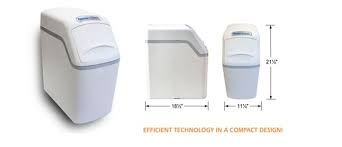In today's fast-paced world, the quality of life greatly depends on the small things we often take for granted. One such element is the water we use in our homes. While it may seem like a trivial matter, the type of water we use can significantly impact our daily lives. In this article, we'll delve into the world of soft water supplies, exploring what they are, why they matter, and how they can transform the way we live.
Understanding Soft Water
What Is Soft Water?
Soft water is essentially water that has a low concentration of dissolved minerals, primarily calcium and magnesium. These minerals are the culprits behind the hardness of water, causing limescale buildup in appliances, plumbing, and even on our skin and hair. Soft water supplies, on the other hand, are free from these mineral ions, making them more desirable for various applications.
The Importance of Water Quality
Water quality is vital for both our health and the longevity of our appliances. Hard water can lead to the buildup of scale in pipes and appliances, reducing their efficiency and lifespan. Soft water, on the other hand, not only ensures a longer appliance life but also offers numerous other benefits.
The Benefits of Soft Water
- Improved Appliance Lifespan
Soft water minimizes the accumulation of limescale in appliances like dishwashers and washing machines, extending their operational life.
- Softer Skin and Hair
Soft water is gentler on the skin and hair, leaving them feeling smoother and less prone to dryness and irritation.
- Energy Savings
Since soft water prevents scale buildup in water heaters, they operate more efficiently, resulting in lower energy bills.
- Better Cleaning
Soft water enhances the cleaning power of detergents and soaps, allowing you to use less product while achieving superior results.
The Softening Process
How Is Water Softened?
Water softening is typically done through ion exchange processes using a water softener. This device replaces the calcium and magnesium ions with sodium ions, effectively reducing water hardness.
Environmental Considerations
While softening water has numerous benefits, it's important to consider the environmental impact. The excess sodium in the softened water can potentially harm aquatic ecosystems if not properly managed.
Choosing the Right Softener
Factors to Consider
When selecting a water softener, there are several factors to keep in mind:
- Water Hardness
The hardness of your water supply is a critical factor in choosing the right softener.
- Water Usage
Consider your household's water usage to determine the capacity of the softener needed.
- Eco-Friendly Options
Look for eco-friendly softeners that minimize the environmental impact.
Maintenance and Installation
Professional vs. DIY
You can choose to have a professional install and maintain your water softener, or you can opt for a DIY approach if you're handy.
Routine Maintenance
Regular maintenance is essential to ensure the efficient functioning of your softener.
Conclusion
In conclusion, soft water supplies offer a plethora of benefits for both your home and your well-being. From extended appliance lifespan to softer skin and hair, the advantages are undeniable. However, it's crucial to choose the right softener, considering factors like water hardness and eco-friendliness. And while enjoying the benefits of soft water, it's equally important to be mindful of its potential impact on the environment.
Frequently Asked Questions
- Can I drink soft water?
While technically safe for consumption, soft water may have an elevated sodium content. If you have health concerns, it's advisable to install a separate tap for drinking water that bypasses the softener.
- How often should I regenerate my water softener?
The frequency of regeneration depends on your water hardness and usage. It's best to consult your softener's manual for specific recommendations.
- Are there eco-friendly water softener options?
Yes, there are eco-friendly water softeners that use less salt and water during the regeneration process, reducing their environmental impact.
- Can I install a water softener myself?
Yes, some water softeners are designed for DIY installation. However, it's essential to follow the manufacturer's instructions carefully.
- What should I do if my water softener is not working correctly?
If you encounter issues with your water softener, it's best to contact a professional for maintenance and repairs to ensure it functions optimally.


